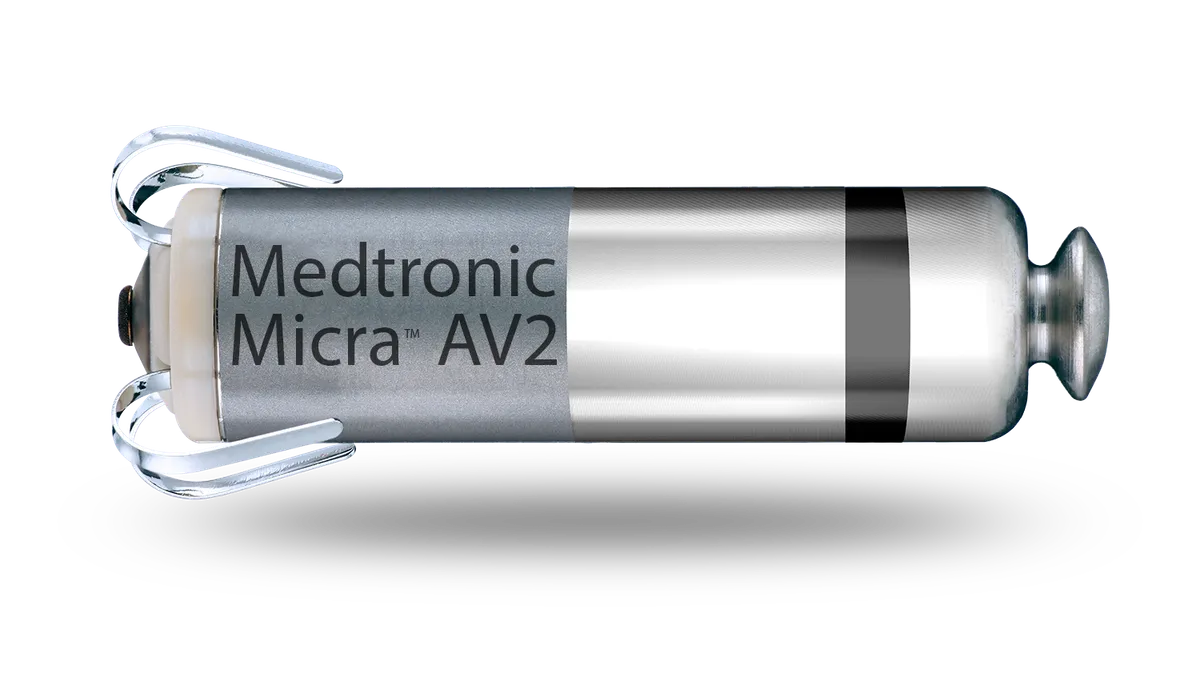Dive Brief:
- Medtronic received approval from the U.S. Food and Drug Administration for two new leadless pacemakers, the Micra AV2 and Micra VR2.
- The devices have about 40% more battery life than Medtronic’s previous generation of pacemakers, with the Micra AV2 lasting nearly 16 years and the VR2 lasting nearly 17 years.
- Last year, competitor Abbott received approval for its own leadless pacemaker.
Dive Insight:
Leadless pacemakers are implanted into the heart’s right ventricle through a minimally invasive procedure. Unlike traditional pacemakers, they don’t require leads or a surgical pocket under the skin.
Medtronic said its newest devices are less than a tenth of the size of a traditional pacemaker — or about the size of a multivitamin. In addition to a better battery life, they also include algorithms that automatically program atrio-ventricular synchrony to coordinate the heart’s upper and lower chambers. Medtronic plans to start selling the devices in May, spokesperson Emily Dornfeld wrote in an email.
Until recently, Medtronic’s devices were the only leadless pacemakers available in the U.S.
Abbott received FDA approval for a competing leadless pacemaker last year. The company said its device has nearly 17 to 18 years of battery life, and includes a mapping capability to help physicians determine the correct placement of the device before final implantation. It’s also designed to be retrieved if a patient needs different treatment in the future.
Boston Scientific has also been working on trials of a leadless pacemaker system.
Medtronic received approval for the first leadless pacemaker in 2016. Nearly 200,000 people globally have received a Micra device to date, Dr. Robert Kowal, general manager of cardiac pacing therapies for Medtronic, said in a statement.
Although proponents of leadless pacemakers say they are safer than traditional pacemakers, they still come with a risk.
In a 2021 letter to physicians, the FDA flagged the risk of major complications if cardiac perforation occurs when the leadless pacemaker is implanted. Cardiac perforation can happen during the procedure when any pacemaker is implanted, the FDA said, and the overall risk appears to be similar for leadless and traditional pacing systems. However, the agency said that evidence suggests perforations linked to leadless pacemakers are associated with more severe outcomes.













